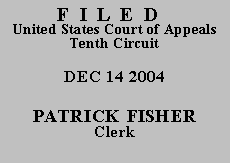

| UNITED STATES OF AMERICA, |
|
| v. | |
| CARLESS JONES, |
and 97-CR-138-S) |
Standard of Review
A COA will issue "only if the applicant has made a substantial showing of the denial of a constitutional right." 28 U.S.C. § 2253(c)(2). The applicant must demonstrate that reasonable jurists could debate whether the petition should have been resolved in a different manner. Slack v. McDaniel, 529 U.S. 473, 484 (2000).
Ineffective Assistance of Counsel
Jones first argues that his counsel's failure to object to an erroneous jury instruction rendered his assistance ineffective. A criminal defendant has a constitutional right to effective assistance of counsel. Strickland v. Washington, 466 U.S. 668 (1984). To be effective, a counsel's assistance must meet an objective standard of reasonableness. Id. at 687-88.
At trial, Jones's counsel stipulated the admissibility of a chemist's report (Exhibit 15). The report analyzed a substance seized from Jones and concluded that it was cocaine base. The court explained to the jury that "'stipulation' means that this report is in evidence, and you may give it so much weight as you think it's entitled as evidence in this case." The court later instructed the jury that when "attorneys on both sides have stipulated or agreed as to the existence of a fact, the jury must, unless otherwise instructed, accept the stipulation and regard that fact as proved." (emphasis added).
According to Jones, this instruction required the jury to regard Exhibit 15 as an established fact and should have been objected to by his attorney. To the contrary, the record shows that while the parties agreed to the admissibility of Exhibit 15, the court went on to explain that the jury did not have to regard Exhibit 15's contents as proven. Furthermore, another instruction stated that the jury had to determine "whether or not the material in question was in fact cocaine base." Therefore, no jurist of reason would conclude that Jones's counsel was objectively unreasonable in failing to object to the jury instructions.
Improper Admission of Evidence
Second, Jones argues that Exhibit 15 was admitted into evidence without a proper foundation. Jones's counsel stipulated to the admissibility of the exhibit, and the district court found that counsel's strategic decision was not ineffective assistance of counsel given the availability of the chemist to testify about the preparation of the report and the chemist's testing of the cocaine base.
We are procedurally barred from considering Jones's claim. "A defendant who fails to present an issue on direct appeal is barred from raising the issue in a § 2255 motion, unless he can show cause for his procedural default and actual prejudice resulting from the alleged errors, or can show that a fundamental miscarriage of justice will occur if his claim is not addressed." United States v. Allen, 16 F.3d 377, 378 (10th Cir. 1994). Jones did not argue on direct appeal that Exhibit 15 was improperly admitted. Furthermore, he has shown neither cause for his procedural default nor that a fundamental miscarriage of justice would occur if his claim is not addressed. Therefore, no jurist of reason would consider Jones's contention that Exhibit 15 was improperly admitted.
Sixth Amendment Right to Trial by Jury
Finally, Jones urges us to consider both of the foregoing arguments in light of Blakely v. Washington, 124 S. Ct. 2531 (2004). Blakely involved the Sixth Amendment right to a jury trial, and is therefore not relevant to whether Jones was denied assistance of counsel or whether evidence was improperly admitted against him. Therefore, no jurist of reason would conclude that, in light of Blakely, Jones has made a substantial showing of a denial of a constitutional right.
Accordingly, we deny COA.
Entered for the Court
Timothy M. Tymkovich
Circuit Judge
*. This order is not binding precedent, except under the doctrines of law of the case, res judicata, and collateral estoppel. The court generally disfavors the citation of orders; nevertheless, an order may be cited under the terms and conditions of 10th Cir. R. 36.3.
2. After examining the briefs and the appellate record, this three-judge panel has determined unanimously that oral argument would not be of material assistance in the determination of this appeal. See Fed. R. App. P. 34(a); 10th Cir. R. 34.1(G). The cause is therefore ordered submitted without oral argument.